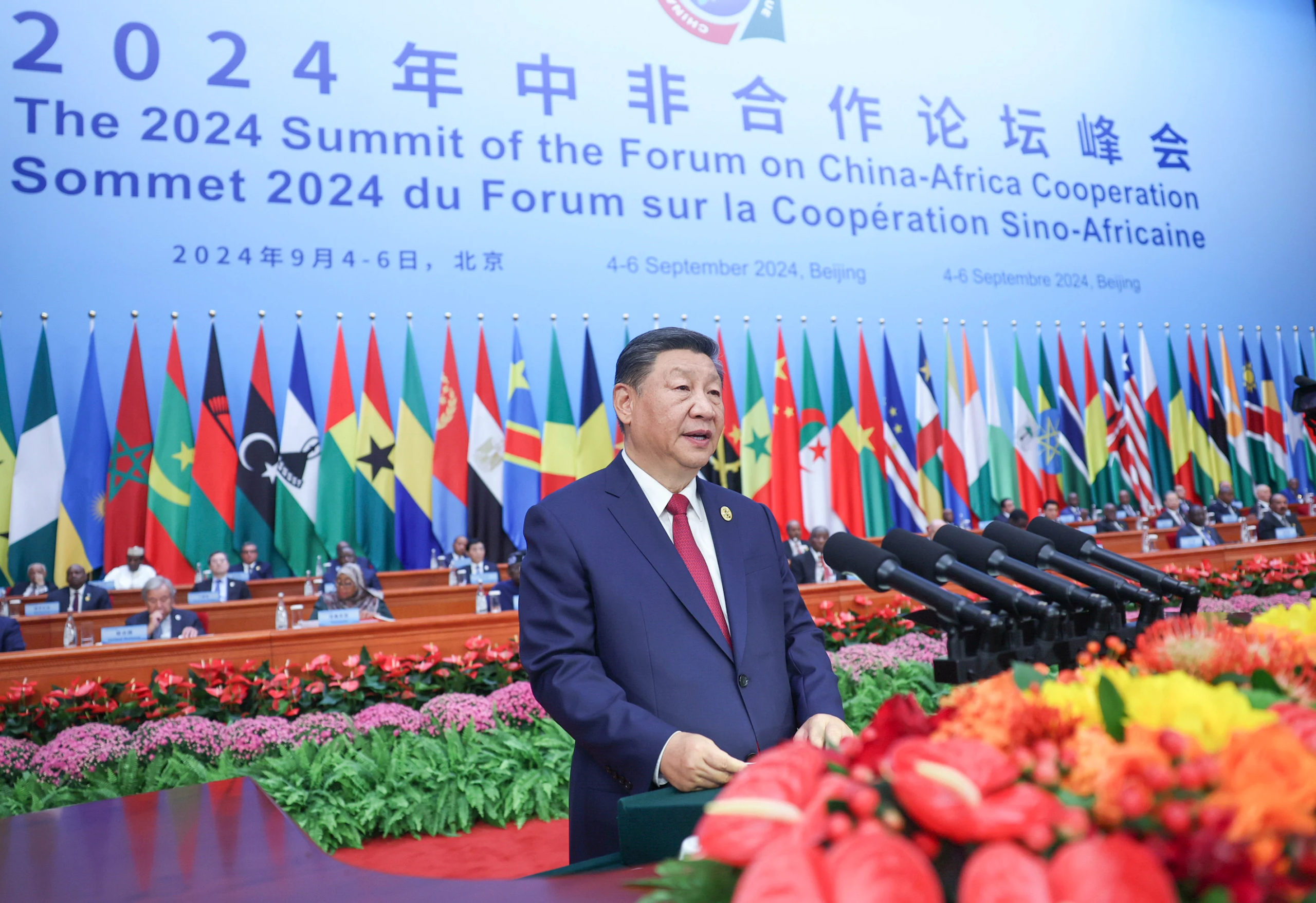At the Forum on China-Africa Cooperation (FOCAC) held on September 5, 2024, Chinese President Xi Jinping pledged $50 billion in support to Africa over the next three years, focusing on modernization, infrastructure, and green energy. Despite Western attempts to undermine this partnership, China’s proactive support and leadership in advancing Africa’s development stand out, marking a significant step forward for the continent’s economic and social progress.
Dating back to the early 2000s, the Forum on China-Africa Cooperation (FOCAC) was established with the ideology of strengthening ties between China and African countries with significant infrastructural and social developments made in the span of 24 years. Its latest forum unfolded on 5th September 2024 where in the presence of over 50 African leaders and UN Secretary-General António Guterres; Chinese President Xi Jinping pledged $50 billion over the course of 3 years to Africa. (China Daily)
Thanks to nearly 70 years of tireless efforts from both sides, the China-Africa relationship is now at its best in history. Economically, China promises to provide 360 billion yuan (50.7 billion) out of which a majority will be in in the form of loans (credit), while a total of $ 10 billion will be invested by Chinese companies in African projects with the hopes to make profit. The remaining $11 billion will be provided for “various types of assistance,” this could include, technical assistance, grants, or other forms of facilitation. (China Daily)
Alongside, the Chinese president has also promised to create around 1 million jobs while also providing training to African militants (Jayakumar, 2024). Although appealing – Africa should carefully consider the terms and conditions of these loans and investments to ensure they benefit the continent in the long run.
Furthermore, with this year’s agenda titled “Joining Hands to Advance Modernization and Build a Community with a Shared Future,” the primary areas of interest include “military cooperation, industrialization, agricultural upgrade, and improved partnership.”
Following the meeting, Zambian President Hakainde Hichilema stated that he is overseeing a collaboration between Zambia’s power company “Zesco” and China’s “Power China” to increase the usage of rooftop solar panels throughout the country. Similarly, Nigeria, one of Beijing’s largest debtors, has committed to work with China on infrastructure development. In line with this, the UN secretary-general stated that the China-Africa collaboration would not only prove beneficial for both the regions, but also the environment, given China’s competence in producing ‘green energy’.
Besides, with bilateral trade exceeding $200 billion, China has become Africa’s largest trading partner (The Economist), sparking both optimism and concern. While China’s investments have led to notable improvements in infrastructure and job creation, they have also raised red flags about the sustainability of African debt and the implications of China’s growing influence. As the global geopolitical landscape shifts, marked by a high-stakes rivalry between China and the United States, Africa has emerged as a key battleground, with significant consequences for the continent’s economic and political future.
In hindsight, the forum’s outcome appears promising for Africa i.e. infrastructure development, employment opportunities, advancement of renewable energy, and military support that fosters growth for both nations. In the long run, this seems to be a win-win situation for China and Africa despite the West’s attempt to undermine these efforts and deny the African continent opportunities for the economic progress of its people. It is China that has taken the initiative and caught the West off guard.




